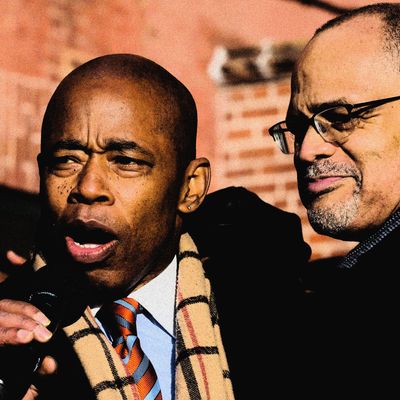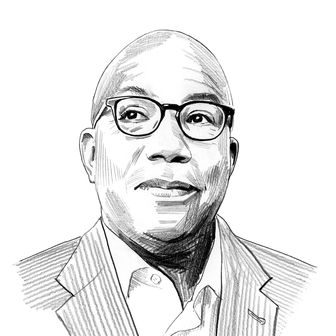
The crucial battle to save New York will be fought not in the street but in the classroom. In the short term, Eric Adams has to keep the central promise of his campaign: cracking down on street crime and restoring the public perception that our subways, buses, parks, plazas, and sidewalks are safe.
But the long-term health of New York — the way to unravel the tangle of inequality, ignorance, deprivation, and discrimination that harms so many families — depends on delivering a sound education to many more of the estimated 65 percent of Black and Latino students who were not testing at grade level even before the pandemic.
That vitally important crusade will be overshadowed by the coming fight to take back the city’s streets. It’s easier to understand, quicker to yield results — and New York’s history of beating back record-high crime levels coincides with Adams’s years on the beat.
He dives into the subject with gusto, sharing war stories from his 22 years as a cop and repeating a mantra from the campaign trail — “public safety is the prerequisite to prosperity” — more or less word for word at nearly every public appearance. The mayor-elect clearly believes he has the tools and experience — and the swagger — to put a hard stop on the current spike in shootings and killings.
“I’m going to put in place a plainclothes gun unit. We must zero in on gun violence in our city,” he said on CNN. This week, while announcing his pick for the troubled Dept. of Correction, Adams issued a blunt warning to people in city jails that he intends to reinstitute the harsh policy of putting inmates in solitary confinement if they commit violence while incarcerated.
“The mayor announced December 31 he’s going to empty out punitive segregation,” Adams said, referring to Bill de Blasio’s plan. “January 1, they are going back into segregation. If they committed an act of violence that is unacceptable. I’m not going to allow inmates and officers to be the victims of violent people.”
We can expect a series of high-profile legal, political, and physical battles for control of the streets and jails, with the city’s tabloids chronicling every bloody skirmish along the way.
But to measure whether the new administration is truly transforming the city, focus on the quieter fight that will be taking place in the schools, where Adams’s pick for chancellor, educator David Banks, has vowed to shake things up.
The biggest change will be a refusal to focus on the issues of concern to the relatively small but extremely noisy group of upper-middle-class families that tend to monopolize public discussions of education with debates about the relative merits of charter schools, gifted and talented programs, and specialized high schools.
Those discussions are important, Banks says, but secondary to the core mission of revamping the learning process for a majority of city students. “If we continue to do things in the way that we’ve been doing them, we’ll continue to get the same results. We need to do things not only differently, but dramatically differently,” he told me. “There are lots of community-based organizations that have been out here doing this work for a long time. We want to get them into this work and into this space in very strategic ways, particularly with the kids who need it the most. That’s what we’re going to be focused on.”
Bringing community-based enrichment into the schools is a core strategy at the Eagle Academies for Young Men, a group of public schools that Banks started for boys in each of the five boroughs. The schools boast an 89 percent graduation rate, thanks to strategies like Saturday mentoring sessions, mandatory parental involvement, and a curriculum designed to be relevant to Black and Latino boys.
Anyplace in the system where schools are succeeding, he says, will become templates to be replicated around the city. “We want to scale up excellence, right? So the things that work, we should be learning from them,” Banks says. “We want to provide incentives for those schools that are doing amazing work to work with the schools that are struggling. Up until now, a lot of the struggling schools, we don’t connect them to the schools that are doing a great job so that they can learn and build their own capacity. We have to expose the other schools to excellence.”
As an example of an excellent school that needs to be replicated, Banks cites Medgar Evers Prep, a public school in Crown Heights that saw 97 percent of its most recent graduating class (just under 200 kids) get college acceptances — including to Cornell, Swarthmore, and Tufts — with most scoring a passing grade on at least one Advanced Placement course and a majority receiving Associate Degree in Applied Science along with their high school diploma.
Banks says he wants to create more schools like Medgar Evers Prep all around the city, and along the way move thousands more kids to basic proficiency. It might not make headlines like the coming crackdown on crime. But if Banks and Adams can reverse generations of indifference and educational neglect, they will help build hundreds of thousands of stable middle-class families in Black and Latino communities — enough to form the foundation of a new, diverse, and dynamic city.
“The system will be reengineered from the bottom up,” Banks said at the announcement of his appointment. “Change is coming.”






























